- Home
- Helen Dunmore
Burning Bright Page 2
Burning Bright Read online
Page 2
His adoptive mother never disclosed to the adoption society that the reason she had not been able to have a child herself was that she had never slept with her husband in fifteen years of marriage. Mr Parrett said nothing and died two years after Paul was adopted. Her dislike of sex extended to those who practised it and to those who were obviously the result of it. Paul was clearly in the second category, as the product of sex which must have been undertaken for pleasure rather than endured for the satisfaction of a wedding ring. Such an attitude was inconceivable to Mrs Parrett. She foretold bad blood. When Paul was a baby she would watch him, as if to see through his transparency the sexual act which had engendered him, going on and on, endlessly repeating itself, endlessly unforgivable.
She was a big, firm, righteous woman who stood alone outside the infant school gates, not speaking to the other mothers, the ones who had toddlers clawing at their skirts and huge moon-faced babies who sucked on dummies and smelled of shit as their mothers smelled of milk and menstrual blood. Her mission was to protect Paul from himself. She believed in swooping into the boy’s room at night and switching back the covers to ensure that he was not playing with himself. He never was, after the first couple of thrashings with Mrs Parrett’s wooden egg-whisk. Even in childhood his sense of timing was excellent. She would find him lying on his back, as instructed, hands crossed over his chest, his lustrous eyes following Mrs Parrett as she tweaked the bedspread back into place. She could not hide her disappointment from him. He hated her and knew that he hated her, but she gave him pleasure too as he grew older. She made him laugh. And he learned quickly. Soon he would get the better of her. By the time he was eight he knew he was stronger than her and that she was making a fool of herself. He was half American, he told himself in the night. Mrs Parrett was a foreigner to him. He invented a language which she could not understand, and spoke it to himself under the covers. American. He laughed quietly in the darkness, knowing that she was stupid. Soon he would grow up and never see her again. She was not his real mother.
But Mrs Parrett never knew that she had had the last laugh. When Paul Parrett grew up he found that his penis, always so receptive to masturbation, his best and most eager friend, wilted completely at the touch of a naked female body. Nor did he want men. It took him quite some time to discover exactly what it was that he was after, but by his mid-twenties he had it all worked out. The problem was that his sexual needs were unfriendly. There was nothing in them for anyone else, except money. He made up his mind that he’d never find a woman willing to put up with them on a long-term or unpaid basis. Once that was decided he could get on with arranging things. It meant having money. That was all right, it was part of the plan anyway. It meant employing intermediaries, which he didn’t like. There was bound to be a risk in it, especially while a young man from nowhere was moving from research for an MP to money-making and back to politics. But he was always good at judging risk. There was a tight web of calculation under the wild surface of his money-making. Sex could be made the same.
Luckily he knows he’s not cursed with the desire to take risks for their own sake, to court exposure and degradation in order to increase his sexual excitement. He knows men who are. He’s seen some get away with it, and he’s seen others caught. For some of them the frisson of idling the car engine round King’s Cross is part of the game. They pretend it’s a necessary evil, but he perceives their pleasure. He’s seen enough of indiscreet telephone calls, the use of an official car for unofficial business, the semi-deliberate, dangerous mingling of two worlds. He isn’t like that, and King’s Cross is no place for a minister of the Crown. Paul Parrett believes that those who are caught want to be caught. They may not be aware of it, but deep in themselves a desire for punishment wells up to meet the punishing world.
And he has never made the mistake of thinking that the editors of tabloid newspapers are stupider than he is. He requires a service, therefore he must deal with intermediaries. He makes sure that these intermediaries are professionals who want to stay in business, and also that they have no links with major organized crime. He wants people who can be frightened when necessary.
He has one of the newer, secure car telephones. He presses another sequence of numbers and listens to the ringing tone. It answers, and he presses another security button.
‘Tony,’ he says ‘It’s Paul. How’s business?’
‘Terrific. And yourself?’
‘That last consignment was way below your usual standard. I’m really not happy with the way things are going. I don’t want to have to find another supplier, but –’
‘No need for that. You say there’s a problem, we sort it out. No worries. Give me a window while we get you fixed up. Two weeks?’
‘Excellent. I’ll be in touch.’
Paul Parrett changes down and shoots into a side-street. Not many drivers know this rat-run. He picks over the conversation in his mind. Something niggles. Yes. He enjoyed playing the game just a little too much that time. He plucks up and identifies his own small flicker of gratification. Stupid. Once you start liking codes and secrecy for their own sake, it’s time to think things over carefully. Never kid yourself you’re getting away with anything. Never kid yourself you’ve got things taped. Or, like many before you, you’ll find that they’ve got you taped.
It’s getting too cosy. Tony and Kai are reliable and they’re building up a reputation for dealing with specialist clients, but if they don’t get it right with the next girl it’ll be time for a change.
That’s settled. He drops the thought, cuts neatly across a stream of traffic, turns west and lets details of a tricky briefing rise to the surface of his mind.
Three
The house waits. Jenny and her baby are gone, as well as the other squatters. Enid saw the men who came to get them out. They weren’t the men who’ve bought the house. Those two are keeping out of the way until all the dirty work’s done. That Tony and Kai. She knows both their names now. They don’t take any notice of her, they know they can’t get her out. And they don’t look like the sort who’d want trouble, not with respectable tenants. With squatters, of course, you can do what you like. Enid’d be straight to the Law Centre if they tried anything on with her. The men who came to get the squatters out were heavies, hired men, not owners. Enid watched and listened and then at last it was all silent again. Now Enid is waiting too. She’s waiting to know why they have bought the house.
It starts to rain. Thick warm drops drum on the van’s roof. Water runs down the windscreen, dislodging the bud-silt which clogs the wipers. Kai turns the ignition and starts the windscreen wipers. The left one doesn’t work: Maddeningly, it skims the windscreen without cleaning it.
‘Do turn them off,’ says Nadine.
‘I need to see out.’
‘Why? There’s nothing to see. It’s much nicer in here.’
He looks round the inside of the van, at the cracked leather seats, threadbare mats and rust-blotched chrome. Nadine’s sweet-papers lie on the floor. She’s eaten a quarter of a pound of sherbet lemons. The ashtray is full, and it doesn’t close. The rain beats harder, a squally wind rises, and the chestnut tree under which they’ve parked the van thrashes its branches until immature conkers drop and bounce off the windscreen like small green mines. In front of them a big empty field stretches. Neither of them would be able to identify the crop which is growing in it. They are city people.
‘We can’t stay long,’ says Kai. ‘With this rain we’ll get stuck in the mud going back up the track.’
Nadine listens to the rain on the roof. The sound makes her feel safe. She doesn’t know where they are and she doesn’t care. She’s here with Kai and they don’t need to go back yet.
Kai watches the raindrops running sideways, joining, puddling. He reaches across the gearstick and puts his hand on Nadine’s thigh. She is wearing her school uniform; a plain white shirt and a short dark blue skirt. Her shirt collar is limp, her skirt is not new. He traces the shape of her k
nee, round and bony, then he slips his hand under it into the soft angle between thigh and calf, and strokes her skin.
‘We can’t,’ says Nadine. ‘I’ve got my period.’
Kai continues to stroke. ‘Never mind,’ he says, as if consoling her. ‘Never mind. It doesn’t matter.’
‘It does to me,’ she says. The van is small enough, their acrobatics tricky enough as it is.
‘OK,’ he says, and pats her thigh, then bends down, collecting the sweet papers, stuffing them into the overfull ashtray. Kai hates dirt, and mess. Nadine tenses slightly. Kai takes up so much more space than she does. It’s warm and airless in the van. She turns and unwinds the window. Fresh wet air blows into the car, drops spatter her bare arm. He wipes the rain off her skin with a finger, then licks it.
‘All right,’ he says. ‘Never mind. We’ll go back.’
As soon as he says it she wants to stay. Why can’t they just sit here and talk? But Kai never wants to do that. Sometimes his practicality melts her: the way he put a towel under them, that first night in his flat, and told her to drink a glass of water before she went to sleep in case she got cystitis. Sometimes it chills her. Nothing’s happening, we might as well go back. It is really quite cold now, and she hasn’t got a jersey. Kai starts the car and puts it into reverse. The wheels skid and whine, then grip as he reverses much too fast back up the track. They’ve left the gate open, so the van bumps back easily on to the road. The wind and rain have torn off bright green leaves and scattered them on the road. They are soft and tender and they tear easily, then they crush into slime.
‘Aren’t you going to shut the gate?’ asks Nadine. The gate had been fastened and tied with twine. Kai shrugs, puts the van into gear and accelerates down the road. He has no intention of learning the language of the English countryside.
‘Don’t worry,’ he says. ‘We’ll get you back to school by two o’clock.’
‘Second lesson,’ says Nadine. ‘I’ll have to say I’ve been in the library.’
Kai concentrates on the road, his eyes narrowed to peer through the badly wiped, streaming windows. Their tyres slosh through surface water, kicking up mud and spray. Nadine crosses her arms and rubs her cold elbows as she watches his hands on the steering-wheel, casual and assured. He’s been driving for eighteen years. Two years longer than she’s been alive.
‘Where are you going, back to the flat?’
‘No, I’m going down to stay with Tony. Some business’s come up.’
‘When’re you back?’
‘I don’t know,’ he says, as if it doesn’t matter. ‘Wednesday. Or Thursday if I have to go on to London.’
Wednesday. That’s five days away. One hundred and twenty hours. Or if it’s Thursday, one hundred and forty-four hours.
‘It’s getting stupid, all this travelling,’ he says, yawning. ‘It’ll be good when the house is sorted out. I must talk to Tony, get him moving. It’s all too fucking slow.’
She stiffens. His voice is as easy and casual as his hand on the wheel. ‘You mean you might be going soon?’ she asks.
At the sound of her voice he turns and looks at her briefly. Small extinguished pale face, dark hair blown about by the window draught. All her small round softness hidden under the clumsy shirt and skirt. No one else knows it’s there yet: only him. He looks back at the road, takes his left hand off the steering-wheel and runs it round the shallow curve of her face, from temple to jaw-bone to chin. Then he rests his warm hand against the side of her face. She rubs her lips into his palm, shuts her eyes, kisses his skin and tastes metal. The taste of money: small change.
‘You’ll come down,’ he says. ‘Once you’ve passed your exams.’
What does he mean? A visit – or to stay? She won’t ask.
‘It’s too long,’ she says. ‘I’ve got another year after this one.’
‘You’re sixteen,’ he says. ‘Old enough to leave home.’ He turns and looks at her, smiles suddenly, too close, his eyes slitting. A real smile, a smile from the eyes. Distracted, he’s let the van drift to the crown of the road. Luckily the distraction has also made him slow down, so there is just time for him to wrench the van back to the left as a grey Volvo packed with children rocks round the corner in a cloud of spray. The Volvo horn blares. Nadine turns and through the rear van window she sees three children staring back, their round cosseted faces agape. The school run, neatly livened by near-death. Kai says nothing. Nadine looks at her watch.
‘The bell will have gone,’ she says.
‘Say the rain made you late.’
‘Not very convincing if I’m supposed to be in the library.’
He laughs. It’s easy for him, thinks Nadine, all he has to do is drive away in his van.
‘I’ve always thought libraries were sexy,’ says Kai.
‘Maybe they are where you come from. Not here.’
Kai is Finnish. He’s always telling her how unusual it is for a Finn to speak English as well as he does; a Finnish Finn, that is, not a Swedish Finn.
But he’s been here ten years, and he’s in business. In business you’ve got to learn fast or you might as well get out. His language is loose, colloquial, easy. Only rarely is it skewed by something else: interference coming through from a foreign language she doesn’t speak. Kai knows about communication. When Nadine goes to his flat the answerphone is always loaded, winking with messages. Tony phones most nights, and the two men talk for a long time. Kai takes calls in the other room. It’s all business. It would only bore Nadine.
‘You’d better not drop me near the gates.’
‘You’ll get so wet, darling.’
She shivers. Darling. He doesn’t say it too often, so each time it’s fresh and delicious. It’s not easy for her to trust the word. She’s heard it too often at home, passing between her parents as part of a complicated exhaustion of emotions. But from Kai it goes straight to her stomach every time, with the weight of Kai behind it, his age, his rough hair with a bit of grey at the front, his warm, heavy, muscular body, his sexual confidence, his directness. It goes straight to her heart. She keeps it there and never tells anyone. And perhaps it helps that ‘darling’ is a word in a foreign language to Kai. He reaches out and flips the stereo button. In this decrepit van the only thing of quality is the stereo. He slots in a new tape and a second later the van is flooded with a mournful tango. The voice quality is radiant.
‘What’s he saying?’
‘Oh,’ he shrugs, reluctant, wanting only to listen. ‘The usual stuff.’
‘What usual stuff?’
‘It’s about a dream place he wants to go to, deep in the forest. He’ll build a house for the girl he loves, and if she doesn’t come to him then he’ll kill himself. Typical Finnish song ending.’
‘I like his voice.’
‘Yes, he’s very famous. He has to sing this song wherever he goes – they always ask for it. He hates it.’
‘How do you know?’
‘I used to know him.’
Kai makes her feel as if she has no past. Only being a child.
‘Does she go?’ she asks.
‘Who?’
‘The girl. The girl he loves.’
‘No, of course not. That’s the point of the song.’
‘So he kills himself.’
‘Not straight away. Not while he’s singing.’
‘All your songs are about the same thing,’ grumbles Nadine, but the flood of the song has gripped her too. She yields to the luxury of sadness, nostalgia for places she has never seen, dark whispering forests and falling rain. Kai rewinds the tape so they can hear it properly. His hand is back on her leg.
They are coming to the outskirts of the city now. In his old van Kai gets through it faster than anyone else. He knows all the rat-runs. In the back-streets, in early afternoon, the first prostitutes are out on the corners. They look tired. Young white-faced girls in jaunty little lycra skirts, bandeau tops and frail sandals, they stare through the van as if it’s not t
here. Kai and Nadine are of no interest. These are short-cuts for businessmen traversing parts of the city where you keep your windows wound up and lock your doors at traffic lights. Unless you are after something. If you are, it doesn’t take long to get it. Since she was eleven Nadine has walked home from school and seen what happens. Slowly it’s swum into focus and become something she understands. First the slowing car, then the sauntering girl glancing quickly up and down the street before she leans in at the car window and assesses its driver in the same second as she asks him the ritual questions and puts her hand on the doorhandle. Kai doesn’t give the girls a glance. He buckets the van down a one-way which brings them out near the school, runs it along the road a short distance, stops. It’s not quite at the gates, but she knows it can be seen from the windows, and the staff-room’s on this side of the building. She opens the door and clambers out, then with deliberate bravado she leans back in again, bends over so her short skirt rides up her thighs, and kisses Kai.
‘See you soon,’ she says. ‘Darling.’
Four
The phone rings, and Paul Parrett takes the call without looking up from the papers on his desk.
‘Tony.’
‘Yeah. Just getting back to you about your query. You know, yesterday.’
‘Yes.’
‘Thing is, can you wait? I mean, I can fill you in for the meantime but there’s something really special coming up which might be just right for you.’
‘How long would that be?’
‘Well, could be six weeks, two months.’
‘That’s ridiculous.’
‘Yeah, I know what you mean, but this is once in a lifetime stuff. Is this line OK?’
‘Yes.’
‘Right,’ says Tony in a burst of candour. ‘Sixteen. Really classy. And looking for her daddy all right. This could be it.’

 The Ingo Chronicles: Stormswept
The Ingo Chronicles: Stormswept The Deep
The Deep The Crossing of Ingo
The Crossing of Ingo Birdcage Walk
Birdcage Walk Glad of These Times
Glad of These Times Counting the Stars
Counting the Stars With Your Crooked Heart
With Your Crooked Heart Burning Bright
Burning Bright House of Orphans
House of Orphans Mourning Ruby
Mourning Ruby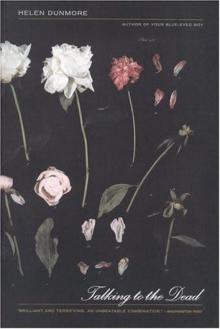 Talking to the Dead
Talking to the Dead Exposure
Exposure Ingo
Ingo The Malarkey
The Malarkey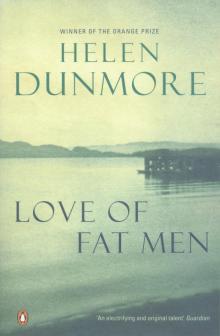 Love of Fat Men
Love of Fat Men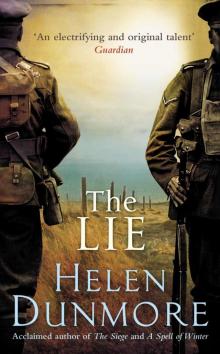 The Lie
The Lie The Siege
The Siege Inside the Wave
Inside the Wave Counting Backwards
Counting Backwards The Land Lubbers Lying Down Below (Penguin Specials)
The Land Lubbers Lying Down Below (Penguin Specials) The Greatcoat
The Greatcoat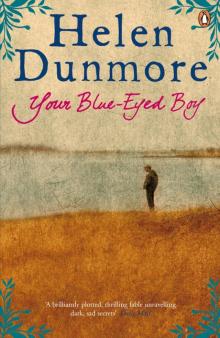 Your Blue Eyed Boy
Your Blue Eyed Boy Zennor in Darkness
Zennor in Darkness Spell of Winter
Spell of Winter Out of the Blue: Poems 1975-2001
Out of the Blue: Poems 1975-2001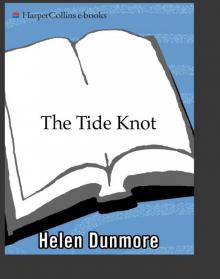 Tide Knot
Tide Knot The Betrayal
The Betrayal A Spell of Winter
A Spell of Winter Out of the Blue
Out of the Blue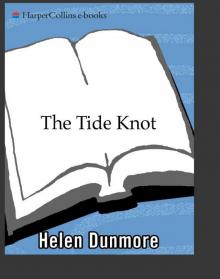 The Tide Knot
The Tide Knot Girl, Balancing & Other Stories
Girl, Balancing & Other Stories Betrayal
Betrayal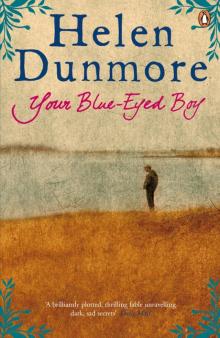 Your Blue-Eyed Boy
Your Blue-Eyed Boy